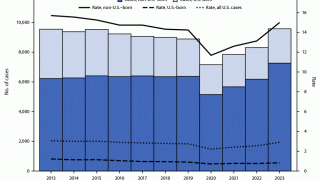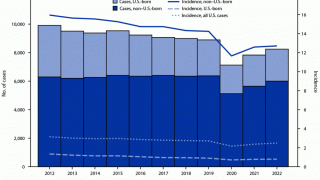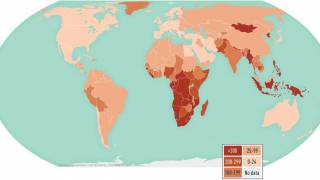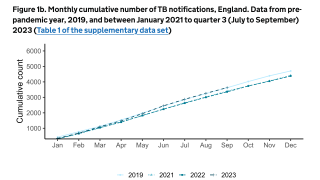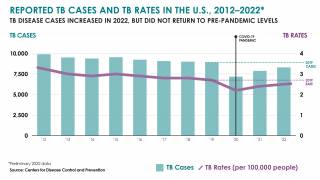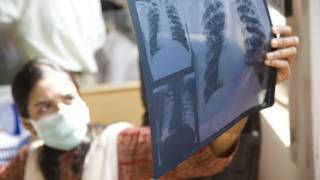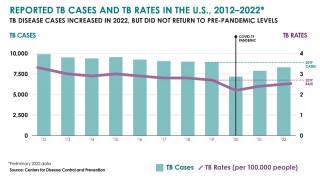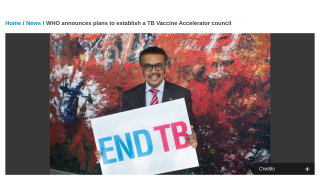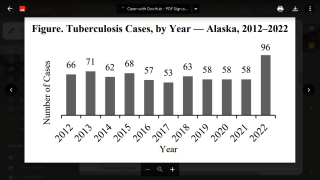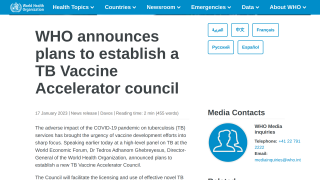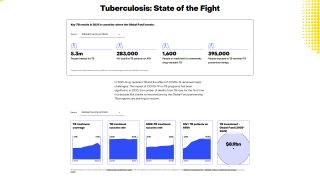An Old Vaccine Resolves Tuberculosis Concerns

In the midst of stalling progress, there are some successes to report on the eradication of tuberculosis (TB), announced the World Health Organization (WHO).
While the world focused on the pandemic, about 26 million people were treated for TB between 2018 and 2021.
Of the 30 high TB-burden countries with the highest treatment coverage levels in 2021 included Bangladesh, Brazil, China, Uganda, and Zambia.
This data falls short of the 40 million targets previously set at the UN High-Level Meeting on TB.
More positively, TB preventive treatment for people living with HIV far surpassed the global target of 6 million in 2018-2022, reaching more than 10 million in only four years.
Seven countries – India, Nigeria, South Africa, Uganda, the United Republic of Tanzania, Zambia, and Zimbabwe – collectively accounted for 82% of those started on preventive treatment in 2021.
“If the pandemic has taught us anything, it’s that we can overcome severe health threats with solidarity, determination, innovation, and the fair use of tools. Let’s apply those lessons to tuberculosis. It is time to put a stop to this long-time killer. Working together, we can end TB,” said Dr. Tedros Adhanom Ghebreyesus, WHO Director-General, in a press release on October 27, 2022.
Countries are also increasing the uptake of new tools and guidance recommended by WHO, resulting in early access to TB prevention and care and better outcomes.
The proportion of people diagnosed with TB who were initially tested with a rapid diagnostic increased from 33% in 2020 to 38% in 2021.
And there has been increased access to shorter (1–3 months) rifamycin-based regimens for TB preventive treatment.
In 2021, 185,350 people in 52 countries were reported to have been treated with rifapentine-containing regimens, up from 25,657 in 37 countries in 2020.
Furthermore, to intensify innovative TB vaccine development, building on lessons from the pandemic, WHO will be convening a high-level summit in early 2023.
The bacille Calmette-Guérin (BCG) vaccine has existed for 80 years. It is one of the most widely used vaccines, reading about 80% of neonates and infants in countries where it is part of the national childhood immunization program, such as the United Kingdom.
However, BCG vaccination does not prevent primary infection and, more importantly, does not prevent the reactivation of latent pulmonary infection, the principal source of bacillary spread in the community.
Mycobacterium tuberculosis (Mtb), the etiological agent of TB, is a leading cause of human disease and death, particularly in developing countries.
The biological interaction between Mtb and the human host is complex and only partially understood.
Recent advances in mycobacterial immunology and genomics have stimulated research on numerous new experimental vaccines. Still, it is unlikely that these urgently needed vaccines will be available for routine use within the next few years.
In the meantime, optimal utilization of BCG is encouraged, says the WHO.
The newly published 2022 Global TB report reiterates its call for countries to put in place urgent measures to restore access to essential TB services.
The 2022 report features data on disease trends and the response to the epidemic from 215 countries and areas, including all 194 WHO Member States.
As usual, the 2022 edition of the report is based primarily on data gathered by WHO from national ministries of health in annual rounds of data collection.
In 2022, 202 countries and territories with more than 99% of the world’s population and TB cases reported data.
PrecisionVaccinations publishes fact-checked, research-based vaccine information manually curated for mobile readers.
Our Trust Standards: Medical Advisory Committee






